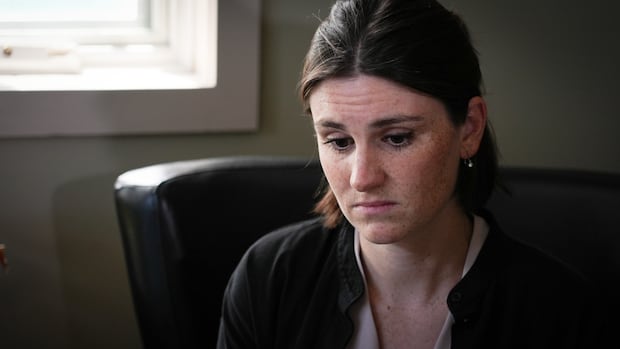Ottawa police stats show 'significant' spike in intimate partner violence
9% rise in reported incidents might not tell the whole story, front-line workers say
New statistics from Ottawa police show an increase in intimate partner violence in the city, but people working on the front line say the data might not tell the whole story.
According to the Ottawa Police Service's (OPS) senior adviser for violence against women, the number of reported incidents between January and June rose by nine per cent compared to the same period last year. Melanie Winwood called that increase "significant."
"What we've seen since 2021 is a one to two per cent annual increase," she said. "So this nine per cent is quite a jump."
Winwood is hoping the increase can be attributed to recent initiatives implemented to encourage women to come forward and report, and not just to a rise in intimate partner violence.
For example, social workers acting as "risk navigators" now reach out to victims of incidents where no charges were laid to give them more information about the reporting process.
"That has had a direct impact on the number of reports, for sure," said Winwood.
Nor does the spike in reported incidents necessarily mean more women are being injured or killed by their partners in Ottawa, Winwood explained. Last year, two of seven women murdered in the city were victims of intimate partner violence.
"[So far] in 2025, we've had four women murdered, and one of those was at the hands of an intimate partner," she said.
Front-line workers seeing more cases
At the Eastern Ottawa Resource Centre, program manager Aline Vlasceanu said there has been a clear increase in requests for individual counselling.
"For context, in the last fiscal year we have had over 100 women on our waitlist for intimate partner violence counselling," she wrote in an email to CBC. "The need continues to outpace available resources."
Vlasceanu said the centre has not noticed a corresponding increase in calls to its crisis lines, however.
At the city's oldest women's shelter, Interval House of Ottawa, some front-line workers have noticed an increase in both the number of cases and their complexity.

Spokesperson Taylor Blewett said one experienced outreach worker who recently returned after being away was taken aback by the sheer caseload.
"She feels like it's grown more intense, and her experience does match what Ottawa police are seeing for intimate partner violence in the community," Blewett said.
"We also hear that food insecurity, housing crunch, people's financial situations have become more dire … and we know that these are factors that contribute to intimate partner violence."
Sarah Woodward worked on the front line at Interval House of Ottawa for 14 years before recently moving into a community engagement role.
"For us, we've never seen a decrease in calls," she said. "There's thousands every year, and the shelter is always full."

Woodward said there has recently been a significant increase in the length of time women typically stay at the shelter, from three months to six to 18.
"That's preventing new folks looking for support from coming into the shelter," she said.
A national trend
Blewett said the data from Ottawa police matches that of Statistics Canada, which shows intimate partner violence is on the rise across the country.
That's also hard on the workers whose job it is to help these women, she said.
"There's frustration. There are solutions that have been thoughtfully considered in response to tragedies. We know this is preventable," she said.
Blewett is calling on Ontario to declare intimate partner violence an epidemic, so the issue can be treated with more urgency.
